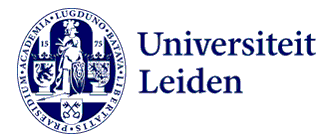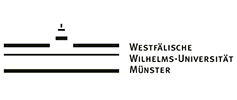Legal-Political Paradigm of Indonesian Constitutional Court: Defending a Principled Instrumentalist Court
DOI:
https://doi.org/10.31078/consrev612Keywords:
Constitutional Court, Instrumentalism, Judicial Restraint, Judicial Review, LegalismAbstract
The establishment of the Indonesian Constitutional Court in 2003 signified the formation of a bridge between the judiciary and politics. Through its judicial review process, there is a more tangible presence of the judiciary and court in the political arena. The Court helps with addressing moral predicaments and influencing the products of the legislature. This paper discusses the shifting of the legal-politico paradigm, particularly relating to judicial leadership of the Court because this significantly affects the role of the Court in the political arena. The history of the establishment of the Court’s authority in judicial review is explored through a stylised analysis of the actions of two early Chief Justices. This paper also examines two Court decisions which illustrated the Court’s authority on judicial review because they demonstrated the importance of policy-driven decisions and judicial restraint. The main argument of this work is that it is hard to categorize the legal-politico actions of the Indonesian Court into either legalism or instrumentalism. Often, the Court synthesises the two. The legal-politico paradigm is a dynamic one. The most feasible model of the Indonesian Constitutional Court is that of a Principled Instrumentalist Court, where policy decisions guide the formation of legislation according to constitutional values, but the judges maintain prudential self-restraint.References
Afandi, Fachrizal. The Justice System Postman: The Indonesian Prosecution System at Work. In The Politics of Court Reform: Judicial Change and Legal Culture in Indonesia, edited by Mellisa Crouch. Cambridge: Cambridge University Press, 2019.
Amsari, Feri. “Kuda Troya bagi MK [Troy’s Horse strategy for demising the Constitutional Court].” Kompas, 4 April 2013.
Asshiddiqie, Jimly and Ahmad Syahrizal. Peradilan Konstitusi di Sepuluh Negara [Comparison of Ten Constitutional Courts in the World]. Jakarta: Sekretariat Jenderal dan Kepaniteraan Mahkamah Konstitusi RI, 2006.
Asshidiqie, Jimly. Konstitusi dan Konstitusionalisme di Indonesia [Constitution and Constitutionalism in Indonesia]. Jakarta: KonPress, 2006.
Austin, John. The Province of Jurisprudence Determined. London: Weidenfeld and Nicolson, 1954.
Basuni, Endy M. “Indonesia’s Democracy Alive, but Needs More Kicks.” The Jakarta Post, 17 July 2019.
Bisariyadi. “Referencing International Human Rights Law in Indonesian Constitutional Adjudication.” Constitutional Review 4, no. 2 (2018).
Blackstone, William. Commentaries on the Laws of England. Whitefish MT: Kessinger Publishing, 2007.
Bongiovanni, Giorgio. “Rechststaat and Grundnorm in the Kelsenian Theory.” In Legal System and Legal Science. The Hague: ARSP, 1997.
Buana, Mirza Satria. “Hubungan Tarik-Menarik antara Kepastian Hukum dan Keadilan Substansial dalam Putusan MK [Substantive Justice and Legal Certainty on the Constitutional Court’s decisions].” LLM Thesis, Islamic University of Indonesia, 2010.
Butarbutar, Elisabeth N. “Kebebasan Hakim Perdata dalam Penemuan Hukum dan Antinomi dalam penerapannya [“Freedom of Judge: Law-finding and Antinomy].” Mimbar Hukum 23 (2011).
Butt, Simon. “Conditional Constitutionality, Pragmatism and the Rule of Law.” Legal Studies Research Paper no. 09, 28, The University of Sydney, 2009.
Butt, Simon and Tim Lindsey. “Economic Reform when the Constitution Matters: Indonesia’s Constitutional Court and Article 33.” Bulletin of Indonesian Economic Studies 44, 2008.
Coelho, Luiz F. “A Contribution to a Critical Theory of Law.” In Legal Philosophy: General Aspects: Concepts, Rights and Doctrines, edited by Michel Troper and Annalisa Verza. Steiner: 2002.
Constitutional Court Law. Law No 8 of 2011 on Revision of Law No 24 of 2003.
Corcoran, Suzanne. “Theories of Statutory Interpretation.” In Interpreting Statutes, edited by Suzanne Corcoran and Stephen Bottomley. Sydney: The Federation Press, 2005.
Decision of Constitutional Court No 27/PUU- VII/2009 on Supreme Court Law.
Dressel, Bjorn. “Governance, Courts and Politics in Asia.” Journal of Contemporary Asia 44 (2014).
Gifford, Donald. Statutory Interpretation. Sydney: The Law Book Company, 1990.
Gray, John C. The Nature and Sources of the Law. New York: The Macmillan Company, 1938.
Hart, H.L.A. The Concept of Law. Oxford: Clarendon Press, 1994.
Haun, William J. “The Virtues of Judicial Self-Restraint.” National Affairs (2018).
https://www.nationalaffairs.com/publications/detail/the-virtues-of-judicialself-restraint.
Hendrianto, Stefanus. “From the Humble Beginning Law to the Functioning Court: The Indonesian Constitutional Courts 2003-2008.” Doctoral Dissertation, University of Washington, 2008.
Holmes, Oliver W. “The Path of the Law.” Harvard Law Review 10 (1897).
Internal Regulation of the Constitutional Court No 06 of 2005 on Procedural Code.
Isra, Saldi. “Gagasan Bernegara Yamin [Yamin’s Suggestion on Nation-State]. ”Koran Tempo, 2 September 2014.
Judicial Review of State Electricity Law, Decision of Constitutional Court No 001-021-022/PUU-I/2003 (The Constitutional Court of the Republic of Indonesia).
Judicial Review of Constitutional Court Law, Decision of Constitutional CourtNo 48/PUU-IX/2011 (The Constitutional Court of the Republic of Indonesia).
Judicial Review of Constitutional Court Law, Decision of Constitutional CourtNo 49/PUU-IX/2011 (The Constitutional Court of the Republic of Indonesia).
Kekes, John. “Morality and Impartiality.” American Philosophical Quarterly 18,no. 4 (1981).
Kelsen, Hans. The Pure Theory of Law. California: University of California Press,1967.
Kirby, Michael. The Judges. Sydney: Australian Broadcasting Corporation, 1983.
Lenhoff, Arthur. “On Interpretive Theories: A Comparative Study in Legislation.”Texas Law Review 27 (1949).
Lev, Daniel S. “The Politics of Judicial Development in Indonesia.” ComparativeStudies in Society and History 7, no. 2 (1965).
Lindsey, Tim. “Filling the Hole in Indonesia’s Constitutional System: ConstitutionalCourts and the Review of Regulations in A Split Jurisdiction.” Constitutional Review 4, no. 1 (2018).
Lindsey, Tim. “Indonesian Trial Process and Legal System, Background Notes.” Unpublished Paper.
Manan, Bagir. “Kekuasaan Kehakiman [Judicial Power].” Paper presented atGeneral Lecture, Airlangga University, 1 December 2011.
Mavcic, Arne. The Constitutional Review. Den Bosch Netherlands: Book World Publications, 2001.
Mc Whinney, Edward. Judicial Review in the English-speaking World. Toronto: University of Toronto Press, 1956.
MD, Mohammad Mahfud. Politik Hukum di Indonesia [Policy-Oriented in Indonesia]. Jakarta: Rajawali Press, 2009.
Posner, Richard A. “The Meaning of Judicial Self-Restraint.” Indiana Law Journal 59, no. 1 (1983).
Ratnapala, Suri. “The Idea of a Constitution and Why Constitutions Matter.” Policy (Summer, 1999/2000).
Raz, Joseph. Ethic in The Public Domain: Essay in The Morality of Law and Politics. Oxford: Clarendon Press, 1996.
Roux, Theunis. “American Ideas Abroad: Comparative Implications of U.S.
Supreme Court Decision-Making Models.” International Journal of Constitutional Law 13, no. 1 (2015).
Roux, Theunis. “Indonesia’s Judicial Review Regime in Comparative Perspective.” Constitutional Review 4, no. 2 (December, 2018).
Shapiro, Martin. Court: A Comparative and Political Analysis. Chicago: University of Chicago Press, 1981.
Shetreet, Shimon. “Judicial Independence: New Conceptual Dimensions and Contemporary Challenges.” In Judicial Independence: The Contemporary Debate, edited by Jules Deschenes and Shimon Shetreet. M.Nijhoff: Hingham, 1995.
Siregar, Fritz E. “Indonesia Constitutional Court Interpretation Methodology, (2003 – 2008).” Constitutional Review 1, no. 1 (2005).
Struchiner, Noel. “The Meaning of Justice.” In Legal Philosophy: General Aspects: Concepts, Rights and Doctrines: proceeding of the 19th World Congress of the International Association for Philosophy of Law and Social Philosophy, Ujang (IVR), edited by Michel Troper and Annalisa Verza. New York, June 1999.
Summer, Robert. “Pragmatic Instrumentalism in Twentieth Century American Legal Thought – A Synthesis and Critique of our Dominant General Theory about Law and its Use.” Cornell Law Review 66 (1981).
Tamanaha, Brian Z. Beyond The Formalist-Realist Divide: The Role of Politics in Judging. New Jersey: Princeton University Press, 2010.
Tempo.com. “Patrialis Akbar Charged for Accepting Bribes.” Tempo, 13 June 2017, https://en.tempo.co/read/news/2017/06/13/055884133/Patrialis-Akbar-Charged-for-Accepting-Bribes. The 1945 Constitution (as amended).
The Jakarta Post Online. “KPK names Akil Mochtar suspect of money laundering
charges.” The Jakarta Post, 26 October 2013, http://www.thejakartapost.com/news/2013/10/26/kpk-names-akil-mochtar-suspect-money-launderingcharges.html.
Amsari, Feri. “Kuda Troya bagi MK [Troy’s Horse strategy for demising the Constitutional Court].” Kompas, 4 April 2013.
Asshiddiqie, Jimly and Ahmad Syahrizal. Peradilan Konstitusi di Sepuluh Negara [Comparison of Ten Constitutional Courts in the World]. Jakarta: Sekretariat Jenderal dan Kepaniteraan Mahkamah Konstitusi RI, 2006.
Asshidiqie, Jimly. Konstitusi dan Konstitusionalisme di Indonesia [Constitution and Constitutionalism in Indonesia]. Jakarta: KonPress, 2006.
Austin, John. The Province of Jurisprudence Determined. London: Weidenfeld and Nicolson, 1954.
Basuni, Endy M. “Indonesia’s Democracy Alive, but Needs More Kicks.” The Jakarta Post, 17 July 2019.
Bisariyadi. “Referencing International Human Rights Law in Indonesian Constitutional Adjudication.” Constitutional Review 4, no. 2 (2018).
Blackstone, William. Commentaries on the Laws of England. Whitefish MT: Kessinger Publishing, 2007.
Bongiovanni, Giorgio. “Rechststaat and Grundnorm in the Kelsenian Theory.” In Legal System and Legal Science. The Hague: ARSP, 1997.
Buana, Mirza Satria. “Hubungan Tarik-Menarik antara Kepastian Hukum dan Keadilan Substansial dalam Putusan MK [Substantive Justice and Legal Certainty on the Constitutional Court’s decisions].” LLM Thesis, Islamic University of Indonesia, 2010.
Butarbutar, Elisabeth N. “Kebebasan Hakim Perdata dalam Penemuan Hukum dan Antinomi dalam penerapannya [“Freedom of Judge: Law-finding and Antinomy].” Mimbar Hukum 23 (2011).
Butt, Simon. “Conditional Constitutionality, Pragmatism and the Rule of Law.” Legal Studies Research Paper no. 09, 28, The University of Sydney, 2009.
Butt, Simon and Tim Lindsey. “Economic Reform when the Constitution Matters: Indonesia’s Constitutional Court and Article 33.” Bulletin of Indonesian Economic Studies 44, 2008.
Coelho, Luiz F. “A Contribution to a Critical Theory of Law.” In Legal Philosophy: General Aspects: Concepts, Rights and Doctrines, edited by Michel Troper and Annalisa Verza. Steiner: 2002.
Constitutional Court Law. Law No 8 of 2011 on Revision of Law No 24 of 2003.
Corcoran, Suzanne. “Theories of Statutory Interpretation.” In Interpreting Statutes, edited by Suzanne Corcoran and Stephen Bottomley. Sydney: The Federation Press, 2005.
Decision of Constitutional Court No 27/PUU- VII/2009 on Supreme Court Law.
Dressel, Bjorn. “Governance, Courts and Politics in Asia.” Journal of Contemporary Asia 44 (2014).
Gifford, Donald. Statutory Interpretation. Sydney: The Law Book Company, 1990.
Gray, John C. The Nature and Sources of the Law. New York: The Macmillan Company, 1938.
Hart, H.L.A. The Concept of Law. Oxford: Clarendon Press, 1994.
Haun, William J. “The Virtues of Judicial Self-Restraint.” National Affairs (2018).
https://www.nationalaffairs.com/publications/detail/the-virtues-of-judicialself-restraint.
Hendrianto, Stefanus. “From the Humble Beginning Law to the Functioning Court: The Indonesian Constitutional Courts 2003-2008.” Doctoral Dissertation, University of Washington, 2008.
Holmes, Oliver W. “The Path of the Law.” Harvard Law Review 10 (1897).
Internal Regulation of the Constitutional Court No 06 of 2005 on Procedural Code.
Isra, Saldi. “Gagasan Bernegara Yamin [Yamin’s Suggestion on Nation-State]. ”Koran Tempo, 2 September 2014.
Judicial Review of State Electricity Law, Decision of Constitutional Court No 001-021-022/PUU-I/2003 (The Constitutional Court of the Republic of Indonesia).
Judicial Review of Constitutional Court Law, Decision of Constitutional CourtNo 48/PUU-IX/2011 (The Constitutional Court of the Republic of Indonesia).
Judicial Review of Constitutional Court Law, Decision of Constitutional CourtNo 49/PUU-IX/2011 (The Constitutional Court of the Republic of Indonesia).
Kekes, John. “Morality and Impartiality.” American Philosophical Quarterly 18,no. 4 (1981).
Kelsen, Hans. The Pure Theory of Law. California: University of California Press,1967.
Kirby, Michael. The Judges. Sydney: Australian Broadcasting Corporation, 1983.
Lenhoff, Arthur. “On Interpretive Theories: A Comparative Study in Legislation.”Texas Law Review 27 (1949).
Lev, Daniel S. “The Politics of Judicial Development in Indonesia.” ComparativeStudies in Society and History 7, no. 2 (1965).
Lindsey, Tim. “Filling the Hole in Indonesia’s Constitutional System: ConstitutionalCourts and the Review of Regulations in A Split Jurisdiction.” Constitutional Review 4, no. 1 (2018).
Lindsey, Tim. “Indonesian Trial Process and Legal System, Background Notes.” Unpublished Paper.
Manan, Bagir. “Kekuasaan Kehakiman [Judicial Power].” Paper presented atGeneral Lecture, Airlangga University, 1 December 2011.
Mavcic, Arne. The Constitutional Review. Den Bosch Netherlands: Book World Publications, 2001.
Mc Whinney, Edward. Judicial Review in the English-speaking World. Toronto: University of Toronto Press, 1956.
MD, Mohammad Mahfud. Politik Hukum di Indonesia [Policy-Oriented in Indonesia]. Jakarta: Rajawali Press, 2009.
Posner, Richard A. “The Meaning of Judicial Self-Restraint.” Indiana Law Journal 59, no. 1 (1983).
Ratnapala, Suri. “The Idea of a Constitution and Why Constitutions Matter.” Policy (Summer, 1999/2000).
Raz, Joseph. Ethic in The Public Domain: Essay in The Morality of Law and Politics. Oxford: Clarendon Press, 1996.
Roux, Theunis. “American Ideas Abroad: Comparative Implications of U.S.
Supreme Court Decision-Making Models.” International Journal of Constitutional Law 13, no. 1 (2015).
Roux, Theunis. “Indonesia’s Judicial Review Regime in Comparative Perspective.” Constitutional Review 4, no. 2 (December, 2018).
Shapiro, Martin. Court: A Comparative and Political Analysis. Chicago: University of Chicago Press, 1981.
Shetreet, Shimon. “Judicial Independence: New Conceptual Dimensions and Contemporary Challenges.” In Judicial Independence: The Contemporary Debate, edited by Jules Deschenes and Shimon Shetreet. M.Nijhoff: Hingham, 1995.
Siregar, Fritz E. “Indonesia Constitutional Court Interpretation Methodology, (2003 – 2008).” Constitutional Review 1, no. 1 (2005).
Struchiner, Noel. “The Meaning of Justice.” In Legal Philosophy: General Aspects: Concepts, Rights and Doctrines: proceeding of the 19th World Congress of the International Association for Philosophy of Law and Social Philosophy, Ujang (IVR), edited by Michel Troper and Annalisa Verza. New York, June 1999.
Summer, Robert. “Pragmatic Instrumentalism in Twentieth Century American Legal Thought – A Synthesis and Critique of our Dominant General Theory about Law and its Use.” Cornell Law Review 66 (1981).
Tamanaha, Brian Z. Beyond The Formalist-Realist Divide: The Role of Politics in Judging. New Jersey: Princeton University Press, 2010.
Tempo.com. “Patrialis Akbar Charged for Accepting Bribes.” Tempo, 13 June 2017, https://en.tempo.co/read/news/2017/06/13/055884133/Patrialis-Akbar-Charged-for-Accepting-Bribes. The 1945 Constitution (as amended).
The Jakarta Post Online. “KPK names Akil Mochtar suspect of money laundering
charges.” The Jakarta Post, 26 October 2013, http://www.thejakartapost.com/news/2013/10/26/kpk-names-akil-mochtar-suspect-money-launderingcharges.html.
Downloads
Published
2020-05-02
How to Cite
Buana, M. S. (2020). Legal-Political Paradigm of Indonesian Constitutional Court: Defending a Principled Instrumentalist Court. Constitutional Review, 6(1), 36–66. https://doi.org/10.31078/consrev612
Issue
Section
Articles
































































